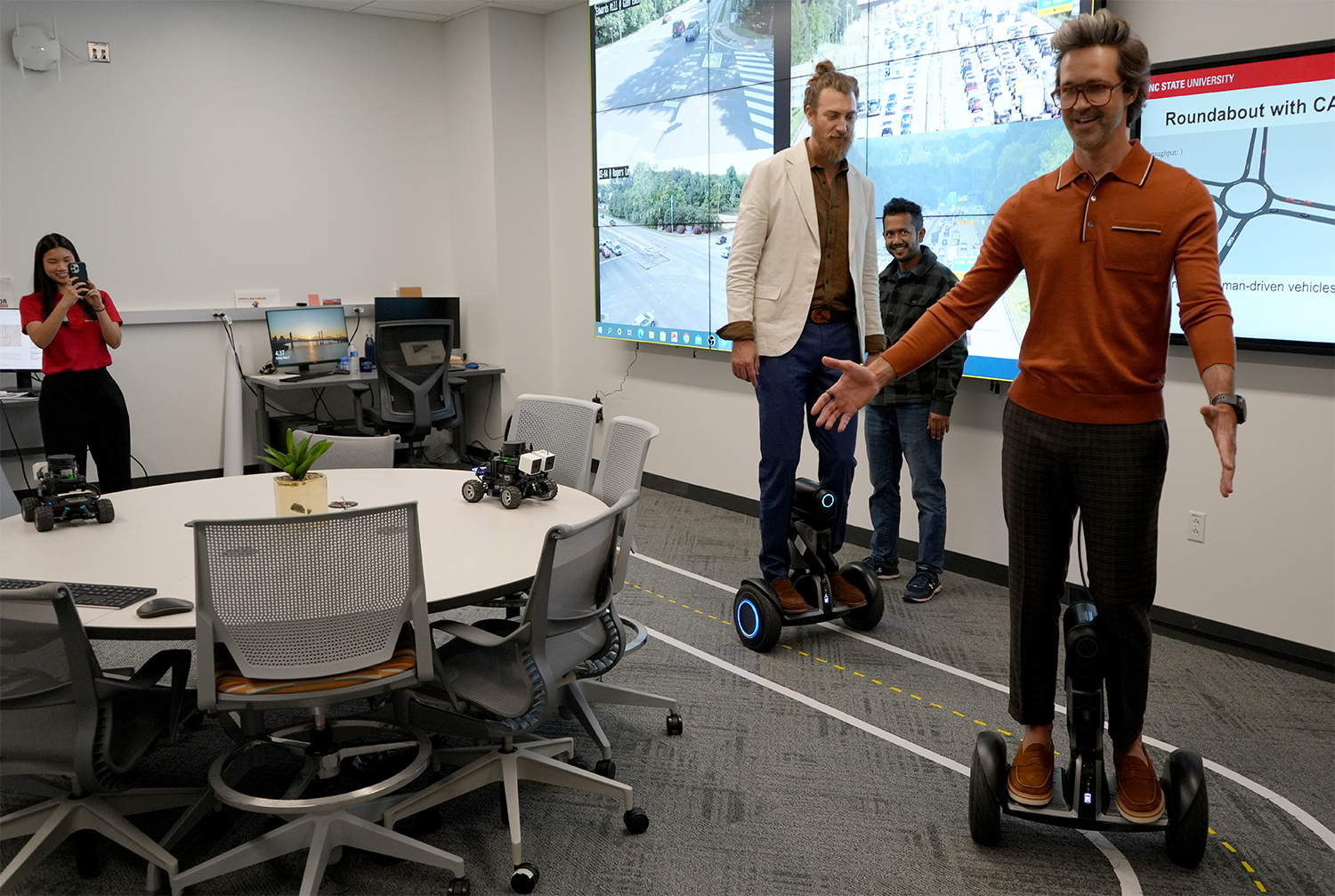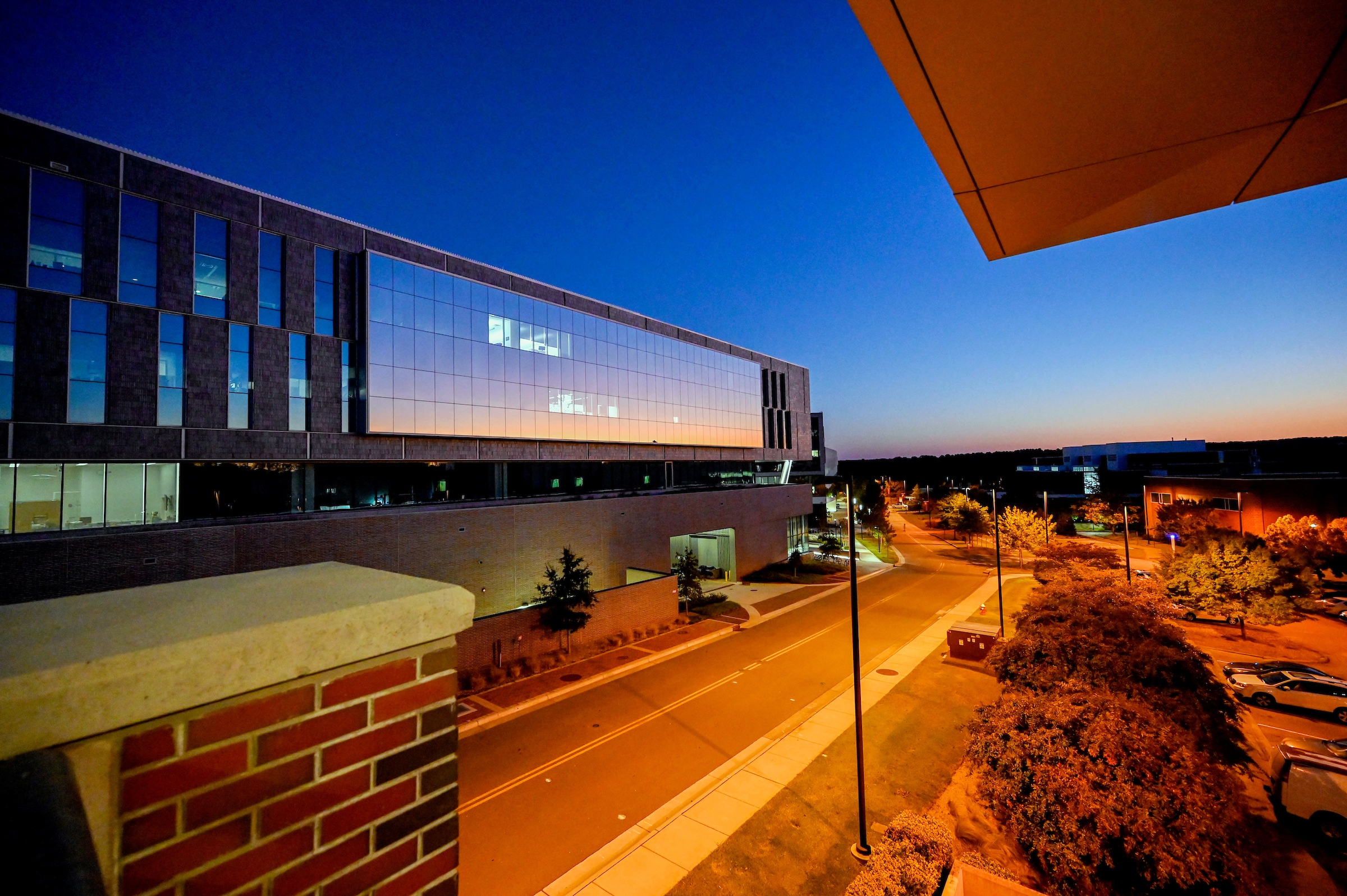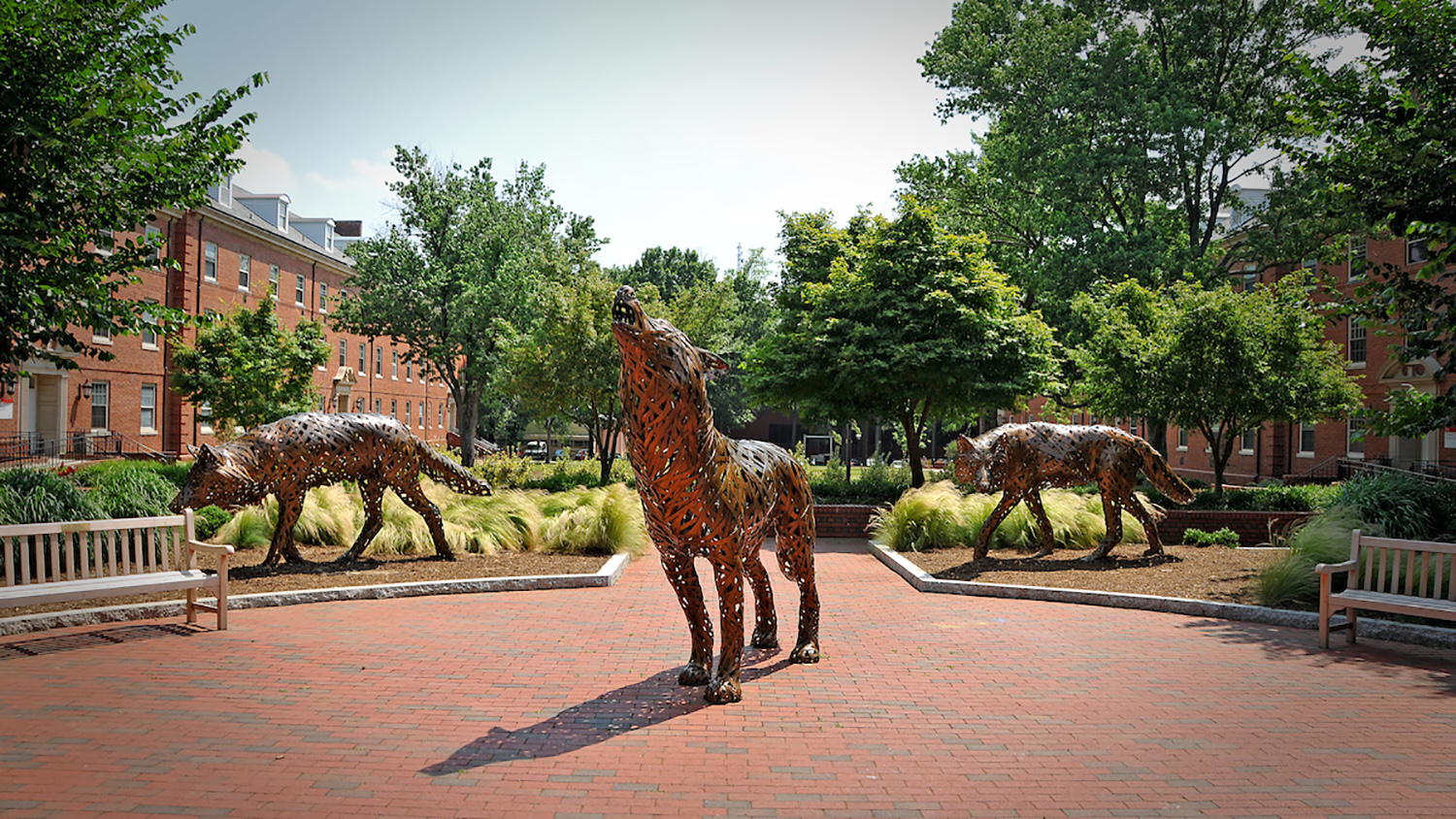Esports for the Pack
One of the largest collegiate esports arenas in the U.S. will be built at NC State with funding from the North Carolina General Assembly.

In 2021 and 2022, NC State received $12 million from the North Carolina General Assembly to build an on-campus esports arena and $4 million to develop a mobile arena truck that brings esports competitions and activities to other parts of the state. Beyond esports competitions, NC State wants to develop a space that supports research, education and economic development. A pilot space will open in the James B. Hunt Jr. Library in 2023, and the new arena is expected to be completed in 2025.
What are Esports?
Esports are video games played in a competitive online environment, sometimes with players facing off in person with a live audience. These events are commentated and broadcasted, and they can draw millions of online spectators on streaming sites Twitch and YouTube. Viewership and participation have grown in recent years, and North Carolina has hosted several large tournaments. Some of the most popular games include Counter-Strike: Global Offensive, Fortnite and League of Legends.

An arena to serve everyone
The arena will offer opportunities not only for student players, but for students who are interested in a broad range of fields, including game design, broadcasting and event management. Marc Hoit, vice chancellor for information technology, envisions the space functioning in the future as one of NC State’s CORE Labs, a shared facility for students and faculty members. “If you want to rent time in it, host a competition, it’s available,” he said. “You can … do the things that you need in order to pursue your research, your education.”

Keys for Success:
University and industry partnerships
Student clubs have provided feedback on what they need to set up cohesive, successful tournaments, or specialized equipment they want. “It’s the little things that we think of,” said Avi Sukhramani, senior marketing major and president of the NC State Esports Club.
NC State is also looking to partner with regional gaming and computer companies. “This facility will enable more interaction with the local industry partners that will provide professional development opportunities to our students and potentially lead to job creation in this new field,” said Arnav Jhala, associate professor in the Department of Computer Science and advisor for the Esports Club.
Student education and inclusion
One of NC State’s main goals for the facility is to develop curriculum for existing gaming-related courses in the College of Design, College of Engineering (COE) and College of Humanities and Social Sciences (CHASS), as well as courses in areas like media broadcasting, business, event management and human-centered streaming data analytics.
Other major priorities for the facility are diversity, inclusivity and sustainability. “Creating a formal community and expert players and spectators also creates opportunities for social sciences research on community dynamics and questions of diversity and inclusion within gaming communities,” Jhala said.
Research opportunities
The space will help with leveraging research funding, especially for interdisciplinary projects. Jhala explained that faculty members in COE and CHASS have interests in similar questions — such as improving our understanding of high-performance user interaction with computer systems — but approach them through different perspectives.
Technology and equipment
The arena will need computer setups, movable desks, big screens, proper lighting, a soundstage and video production capabilities, to name a few requirements.
Esports at NC State
NC State’s Esports Club started in 2018, when several esports groups on campus joined together. The club now has 200 active members and more than 1,700 subscribers on the communications platform Discord. Teams have experienced success at the collegiate level.

The club also aims to provide a space for people not playing at a high level. They are focused on bringing in groups who have been traditionally marginalized in esports, which have been predominantly played by white and Asian men. There are three women on the club’s board. “The community aspect is always something I’m trying to push forward,” Sukhramani said.
Correction: Since the print publication of this article, the opening dates for the esports pilot space and arena have been updated from 2022 to 2023, and 2024 to 2025, respectively. The online version of the article has been updated to reflect this.
- Categories:


